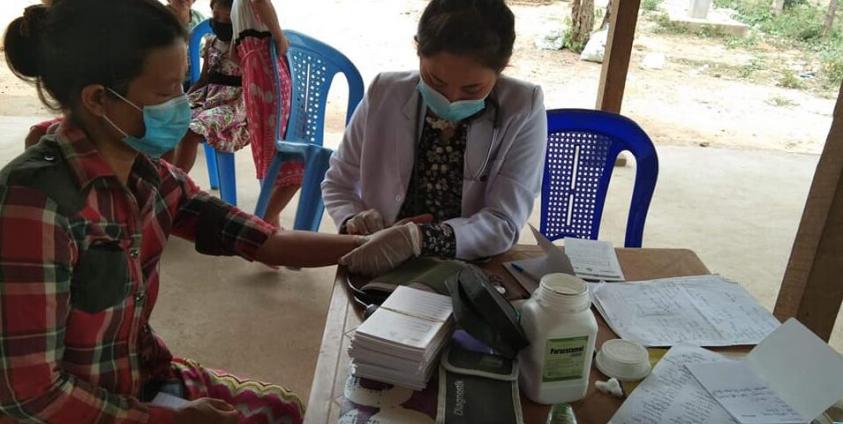The government is preventing the Kachin Backpack Health Worker Team (KBHWT) from providing essential medical services to remote areas of Burma’s most northeastern state since the end of August, after the country experienced a steep increase of coronavirus transmissions.
KBHWT is concerned for the health of villagers living in these remote areas, whose villages are cut off from the rest of the country.
“People living in mountainous areas suffer from other diseases but not COVID-19,” Mr Zet, who works with KBHWT, told KNG. Because of the high elevations where they live, they often get bad coughs, fever or flu. “That is why we often travel there to provide them (medical) assistance.”
Before being blocked, KBHWT medics traveled to remote mountainous Naga villages and other secluded areas in Tanai (or Danai), Hpakant, N’jan Yang and Sumprabum townships.
Because no other medical services exist in these areas, KBHWT wants the government to allow its teams to get back to work. “We’ve been following the government’s guidelines,” Mr Zet said, explaining his staff have medical training. And they’re knowledgeable about disease prevention. “We want the authorities to allow us to provide medical care in these remote areas.”
There are more illnesses to be concerned about than just COVID-19, the disease caused by the coronavirus, he said. These other disorders also threaten the health of the villagers.
Founded in 2009, KBHWT is a branch of Kachin Development Networking Group (KDNG). It is affiliated with the Backpack Health Worker Team, which is based in the Thai border town, Mae Sot. KBHWT volunteers provide vital health services to rural areas, including camps for internally displaced persons.







